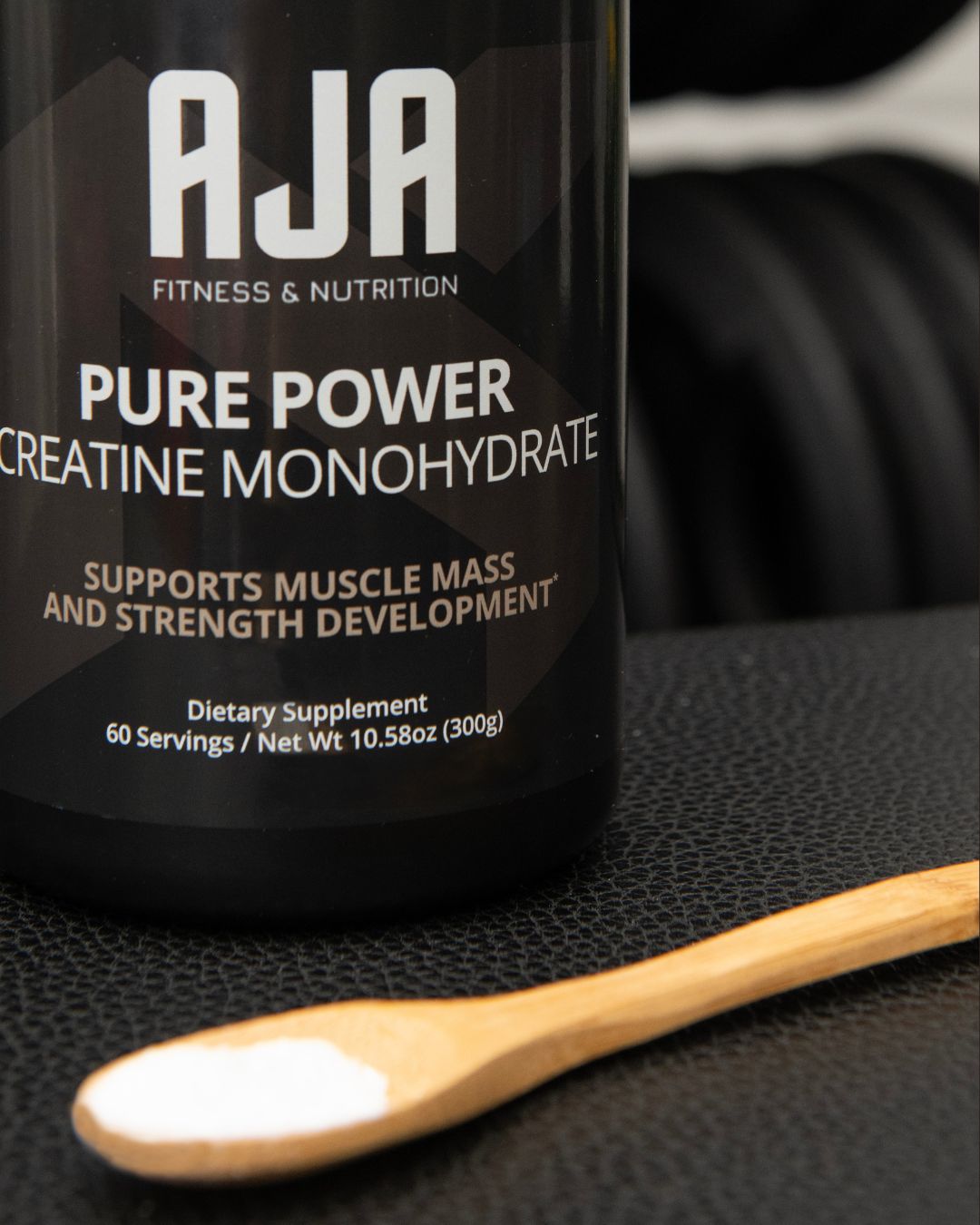
For decades, creatine has been one of the most researched supplements out there, with over 1,000 peer-reviewed studies proving it’s safe, effective, and not just for gym bros. Yet, we still get hit with nonsense about baldness, bloating, kidney failure, and steroids.
Enough of the myths. Here’s the truth—no fluff, no-nonsense.
Creatine Myth #1: “Creatine is Basically a Steroid”
First off, creatine is not a steroid. Steroids mess with your hormones; creatine doesn’t. It’s a naturally occurring compound found in steak, fish, and your muscles. Its job? To help your body produce ATP (adenosine triphosphate)—the fuel your muscles use for energy, strength, and endurance.
The truth is, creatine has zero impact on testosterone or any other hormone. It’s just a highly effective energy booster that helps increase strength, power, and muscle growth over time.
The science says that taking 3-5g of creatine per day has been proven to boost strength, muscle mass, and even brain function—without affecting hormone levels. (pmc.ncbi.nlm.nih.gov)
Bottom line? If creatine were a steroid, you’d need a prescription. Instead, you can grab it off the shelf because it’s 100% safe and legal.
Creatine Myth #2: “Creatine Wrecks Your Kidneys”
This one’s been around forever. The theory? Creatine gets converted into creatinine, a waste product that doctors measure for kidney health. Some people assume more creatinine means kidney damage.
That’s just bad science.
Kidney damage happens when kidneys can’t filter waste properly—not just because creatinine levels go up.
The science says: A five-year study on 52 healthy adults taking creatine showed zero kidney damage. (pubmed.ncbi.nlm.nih.gov)
Another 21-month study on Division 1 football players found no negative effects on kidney function, even with long-term creatine use.
Unless you already have kidney disease, your body knows exactly how to handle creatine. If you eat steak, your kidneys process creatine every single day.
Still worried? Drink water, stay hydrated, and move on.
Creatine Myth #3: “Creatine is Just for Bodybuilders”
If you’re over 40, lifting weights, running marathons, or just trying to stay strong and mobile, creatine is for you.
- Better memory and focus—Creatine fuels your brain, helping you stay sharp.
- Stronger bones—It helps maintain bone density and lowers the risk of fractures.
- Prevents muscle loss—Creatine slows age-related muscle decline (sarcopenia).
- If you’re over 40 and want to stay strong, mobile, and mentally sharp, creatine should be in your routine.
Additionally, while the timing of creatine ingestion is not the most critical factor, multiple studies and anecdotal experiences suggest that taking creatine right before or immediately after training may yield the best results. However, this must be combined with consistent training to maximize benefits. It’s not one or the other—it’s about doing it all.
Creatine and Blood Pressure
There has been speculation that creatine monohydrate (CrM) might increase blood pressure due to factors such as fluid retention within cells and increased stress on kidney function. Additionally, creatine kinase—an enzyme involved in ATP production—is found in resistance arteries and may play a role in vasoconstriction, which could theoretically raise blood pressure.
However, research does not support these concerns. Studies on young, healthy individuals taking high doses (10–20g/day) of creatine for short durations (5–31 days) found no effect on blood pressure. More importantly, a systematic review of clinical populations (heart failure, ischemic heart disease, and myocardial infarction patients) also found no impact of creatine supplementation (up to 20g/day for six weeks) on blood pressure.
A two-year study in postmenopausal women receiving 0.14g/kg/day of creatine showed no significant difference in systolic or diastolic blood pressure compared to a placebo group. Additionally, one study found that three weeks of creatine supplementation (10g/day) reduced the acute blood pressure response to resistance training, possibly by improving anaerobic metabolism and reducing metabolic by-products that stimulate the sympathetic nervous system.
While studies in individuals with pre-existing hypertension are limited, existing evidence suggests that creatine does not negatively impact blood pressure in healthy individuals.
Creatine Myth #4: “Creatine Doesn’t Work Without Exercise”
If you think creatine is useless unless you’re hitting the gym five days a week, you’re missing out.
- Creatine prevents muscle loss—Even if you don’t lift weights, it helps preserve muscle mass and strength as you age.
- Creatine boosts brain power—It improves memory, focus, and mental processing speed, especially in sleep-deprived individuals.
- Creatine fights inflammation—It helps joints recover faster from wear and tear.
The science says: A 14-day study in older adults (ages 64-86) found that creatine increased grip strength by 6.7% and physical endurance by 15.6%—without exercise. (pmc.ncbi.nlm.nih.gov)
Even if you never touch a dumbbell, creatine still works for you.
Creatine Myth #5: “Creatine Will Make You Fat and Bloated”
This is one of the most common fears—guys avoid creatine because they think it’ll make them look soft, puffy, and bloated.
Here’s the truth:
- Creatine pulls water into muscle cells, not under your skin.
- It doesn’t cause bloating—it makes muscles look fuller and stronger.
- Creatine weight gain is more muscle hydration, not fat.
The science says: A study found creatine users had greater muscle hydration and growth—but no increase in fat or subcutaneous water retention. (pmc.ncbi.nlm.nih.gov)
If you’re gaining weight on creatine, it’s muscle hydration—not fat or water retention under your skin.
Does Creatine Influence Blood Pressure?
There has been speculation that creatine monohydrate (CrM) might increase blood pressure due to fluid retention within cells and potential stress on kidney function. Additionally, creatine kinase, an enzyme involved in ATP production, is found in resistance arteries and may contribute to vasoconstriction, which can increase blood pressure. However, the concentration of this enzyme in blood is not a direct indication of creatine levels in tissue but rather a sign of plasma membrane damage, mostly from skeletal muscle.
Despite these concerns, multiple studies have shown no significant effect of CrM on blood pressure, even at high doses (10–20 grams/day) for up to six weeks in clinical populations, including those with heart conditions. A two-year study in postmenopausal women found no meaningful changes in systolic or diastolic blood pressure between creatine and placebo groups. While more research is needed for those with pre-existing hypertension, one study even suggests that CrM might help reduce the acute blood pressure response to resistance training, possibly by improving anaerobic metabolism and reducing metabolic by-products that trigger sympathetic nervous system activation.
Can Creatine Help with Sleep Deprivation?
Lack of sleep negatively impacts cognitive function, motor skills, and mood, partly due to reduced creatine levels in the brain. Some studies suggest that creatine monohydrate (CrM) supplementation may counteract these effects. One study found that participants who consumed 5 grams of creatine four times daily for a week showed less cognitive and motor decline after 24 hours of sleep deprivation compared to a placebo group. Another study found that creatine improved performance in complex cognitive tasks during 36 hours of sleep deprivation, particularly in individuals performing moderate-intensity exercise.
Further research on elite rugby players showed that creatine supplementation (50–100 mg/kg) prevented declines in skill performance caused by sleep deprivation, similar to the effects of caffeine. Another study demonstrated that a single high dose of creatine (0.35 g/kg) partially reversed fatigue-related cognitive impairments. However, not all studies support these benefits—one study found no significant cognitive improvements in well-rested individuals taking creatine. While more research is needed, current evidence suggests that creatine may help mitigate some effects of sleep deprivation, particularly on cognitive and motor function.
How to Avoid Bloating from Creatine
- Stay hydrated. Creatine works best when you drink enough water.
- Skip the loading phase. Just take 3-5g daily—no need for high doses.
- Keep moving. Even light activity helps creatine work better.
Bottom line? Creatine won’t make you fat, bloated, or puffy. It hydrates your muscles, making them stronger, fuller, and more efficient.
Visit AJA Nutrition today and take the first step toward feeling unstoppable.
Let’s make it happen.
Anthony
